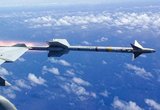More fiscal pain for Boeing on KC-46A Pegasus and other key programmes
Whereas the development contract of the nearly 12-year-old KC-46 is worth $4.9 billion, the programme has now suffered over $6.8 billion in losses. (Photo: US DoD)
Boeing has disclosed a colossal $2.8 billion loss on various defence programmes this quarter, the company announced on 26 October.
The losses occurred on the KC-46A tanker, T-7A Red Hawk trainer jet, MQ-25 Stingray UAS, the VC-25B Air Force One replacement and NASA’s Commercial Crew programme.
The latest reports mean that Boeing's defence, space and security (BDS) sector has suffered a total of around $3.7 billion in losses this year.
The losses were ‘driven by higher estimated manufacturing and supply chain costs, as well as technical challenges' and 'were also impacted by unfavourable performance on other programmes,’
Already have an account? Log in
Want to keep reading this article?
More from Air Warfare
-
![L3Harris begins work on South Korean AEW&C aircraft, eyes further international opportunities]()
L3Harris begins work on South Korean AEW&C aircraft, eyes further international opportunities
The company remains upbeat about its Indo-Pacific and European prospects, with its AERIS X system onboard a Bombardier 6500 proving an attractive option for air forces’ growing AEW&C needs.
-
![Saudi Arabia air report: The world’s fourth-largest UAV market seeks to strengthen domestic industry]()
Saudi Arabia air report: The world’s fourth-largest UAV market seeks to strengthen domestic industry
With $9.18 billion in uncontracted programmes — including a potential multi-billion-dollar MQ-9B deal — Saudi Arabia’s UAV sector is poised for significant further growth and industrial expansion.
-
![AI mission-autonomy software integration and partnerships see progress across CCA efforts]()
AI mission-autonomy software integration and partnerships see progress across CCA efforts
The successful integration of third-party mission autonomy in the US Air Force’s CCA programme and movement on Helsing’s Europa CA-1 timelines mark key milestones in the development of uncrewed aerial capabilities.
-
![Airbus Helicopters is deepening its European reach as NATO orders climb]()
Airbus Helicopters is deepening its European reach as NATO orders climb
Airbus has delivered more than 2,000 helicopters to nations across Europe, and continues to solidify its position at the heart of the region’s defence industrial base.























